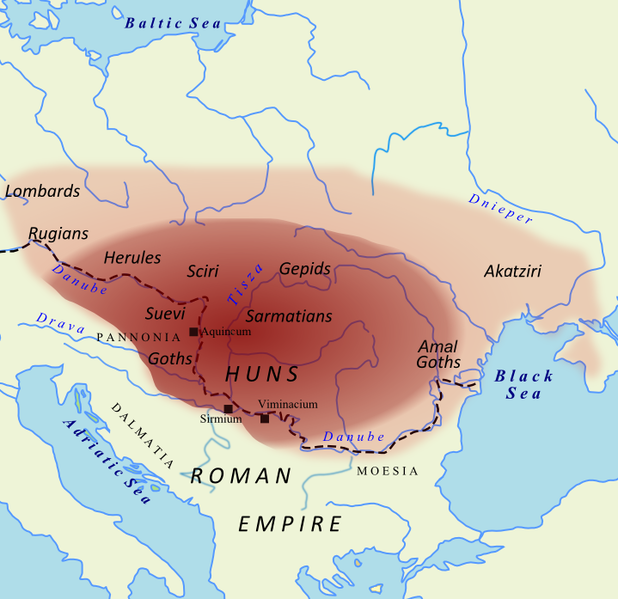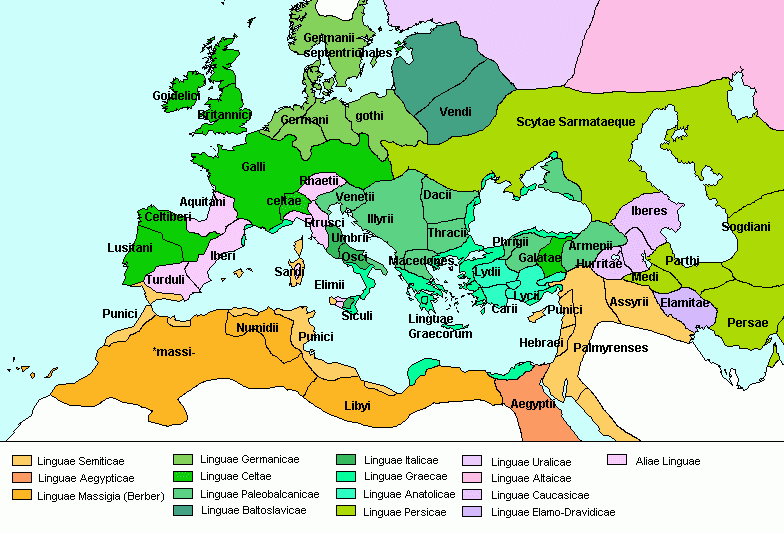Pangur Bán;12506194 said:Yes it did. Who adopted Hunnic as a language? What farming area became Hunnic speaking?
Adopting hunnic as a language is not really a prerequisite for expanding. The empire of the Huns under Attila was larger than the whole Slavic-European world at the end of the Slavic migrations.
Furthermore there is no real knowledge of a Hunnic language. It seems that most of the people in the Empire of the Huns spoke Gothic, itself an older germanic language that died out.
A map of the Empire of the Huns in its peak:
Spoiler :
Maps i found vary, but all show a vast empire during the reign of Attila.
EDIT It has been noted to me that this particular map is a hyperbole, so i am taking it out. Still the Empire of Attila was certainly very large, and hunnic expansion was very pronounced, which was my point.





